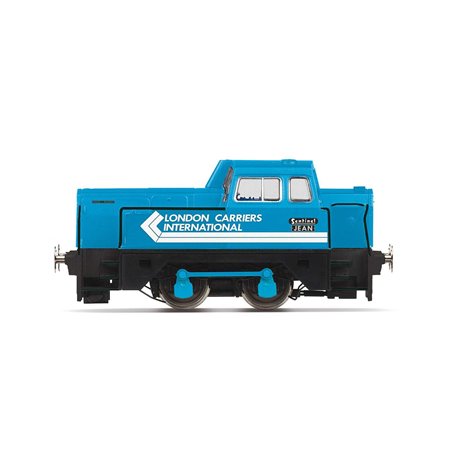No products
Product successfully added to your shopping cart
There are 0 items in your cart. There is 1 item in your cart.
Open on Good Friday
The shop will be open on Friday 18th April.
Bring us some chocolate!
 View larger
View larger London Carriers International, Sentinel, 0-4-0, 'Jean' - Era 8
R30009
Hornby
London Carriers International, Sentinel, 0-4-0, 'Jean' - Era 8
In stock
| Scale | OO (1/76) |
| Material | Mixed |
| Assembly | Ready to use |
| Finish | Painted |
More info
Founded as Ally & MacLellan, Glasgow in 1875 and then later known as the Sentinel Waggon Works Ltd, the company went through various place and name changes until in 1957 Sentinal (Shrewsbury) Ltd was obtained by Rolls-Royce. At that time Sentinel were producing steam locomotives and lorries, but the manufacturing of these vehicles ceased in 1958. In 1959, Sentinel produced a prototype diesel shunter which was operated on the military controlled Shropshire & Montgomeryshire Railway. In total 17 were produced and operated quite successfully during that year.
1963 saw the introduction of the 34 ton chain drive 4 wheel Rolls-Royce diesel powered Sentinel shunter rated at 233 bhp which was later uprated to 255bhp. As time progressed the design was modified with all manner of variations, including 6 and 8 wheel coupled locomotives which found service in collieries, dockyards, quarries and foundries, with others being exported and operated on Portuguese Railways.
Over the years, as these locomotives were retired, many found their way on to preserved railways where they continue to provide stalwart service. This locomotive has had various roles and owners over the years before ending up in the hands of London Carriers International, based at Paddock Wood in Kent. London Carriers International operated a large rail fitted warehouse and used their sentinel to move goods dropped off by BR trains into and around the ½ mile long building. Supposedly the exhausts produced at start-up regularly set off the buildings fire alarms and so the locomotive was quickly sold on to the East Lancashire Railway.

